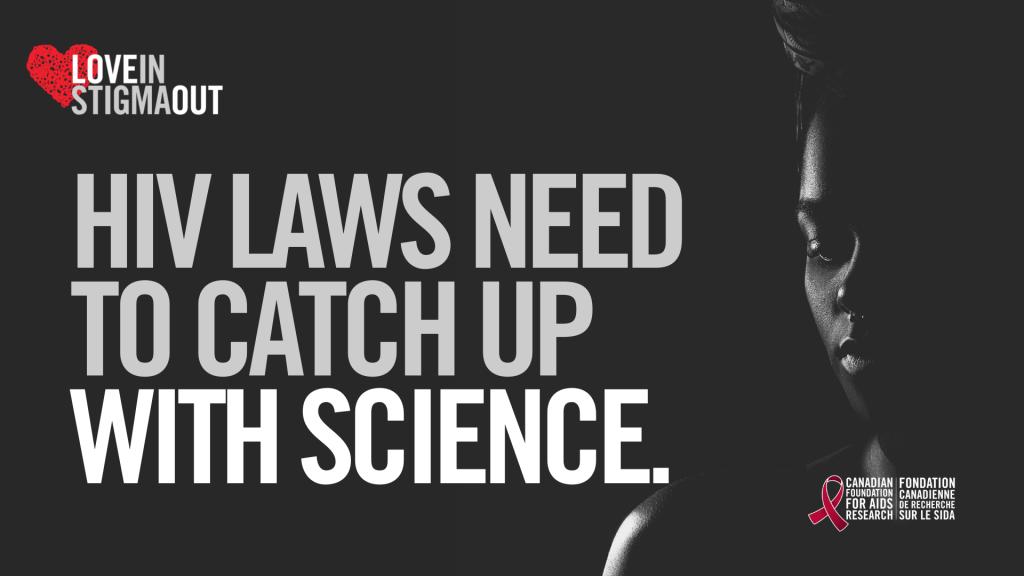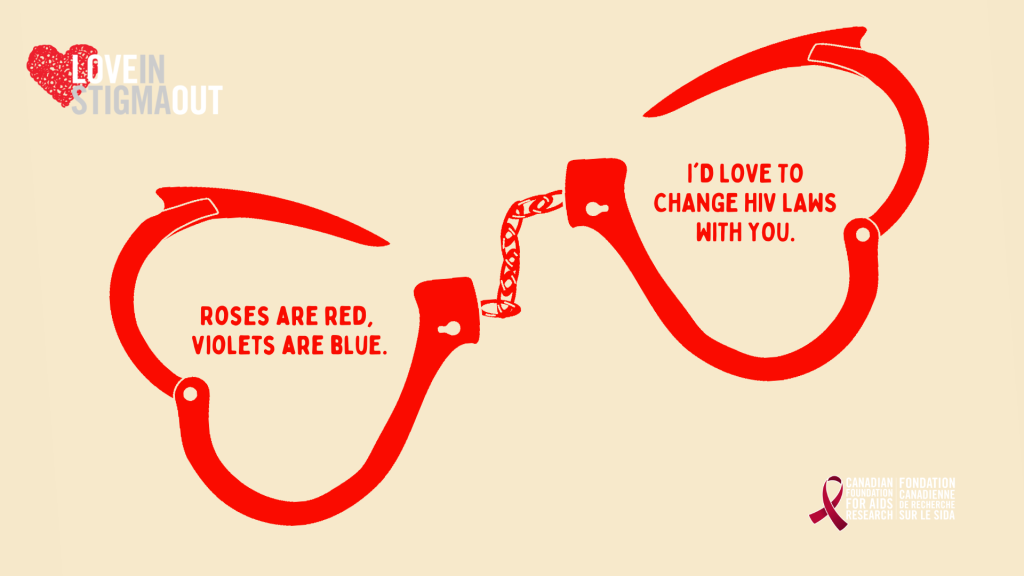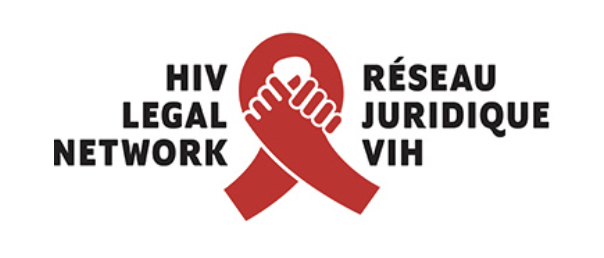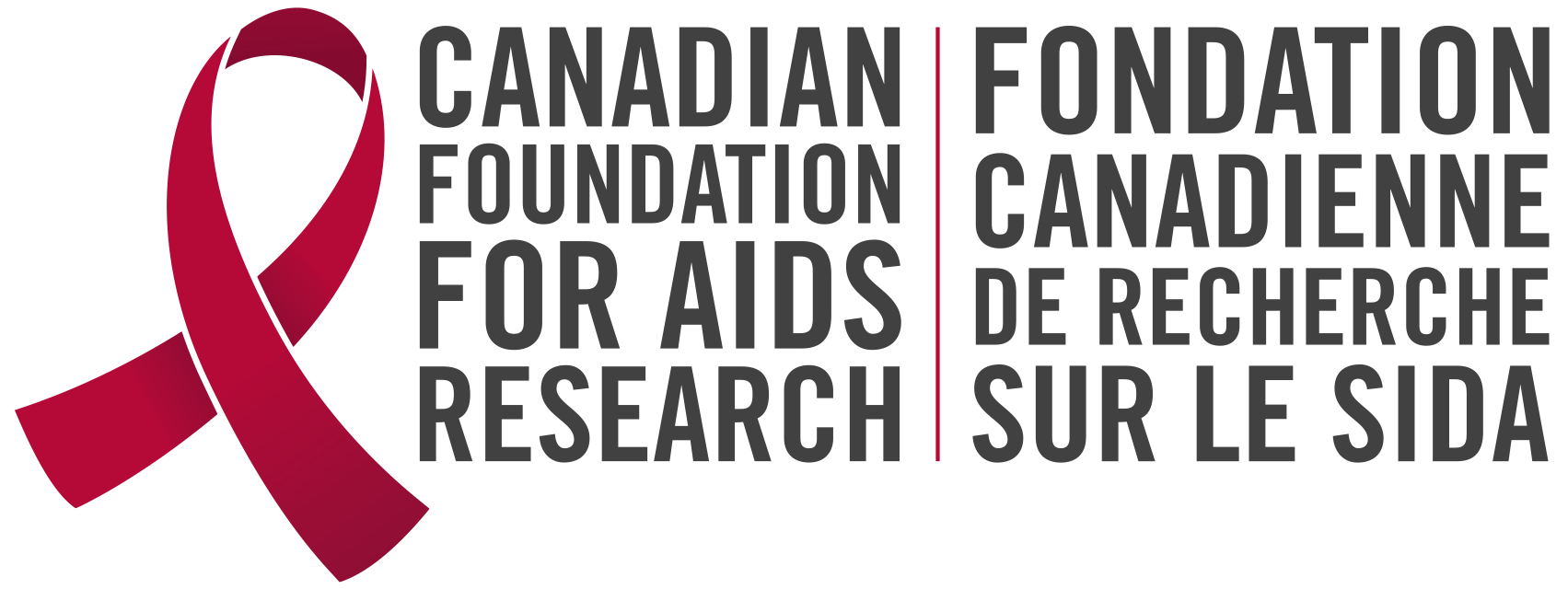Q&A with the HIV Legal Network

HIV criminalization stops people from getting tested. It stops people from disclosing their status. It perpetuates institutional stigma. We cannot end the HIV epidemic without decriminalization.
The HIV Legal Network promotes the human rights of people living with HIV or AIDS and other populations disproportionately affected by HIV, punitive laws and policies, and criminalization, in Canada and internationally.
They do this through research and analysis, litigation and other advocacy, public education, and community mobilization. The HIV Legal Network is a founding member of the Canadian Coalition to Reform HIV Criminalization, and continues to work to end HIV criminalization in Canada and beyond.
We recently caught up with the HIV Legal Network to talk about the issues surrounding HIV and the law in Canada.
Why was HIV criminalized in the way it was in Canada?
There is a longstanding history of stigma and discrimination against people living with HIV that goes back to the very beginning of the HIV and AIDS epidemic. It is rooted in homophobia and racism as well as an exaggerated sense of risk of transmission, and the outdated idea of HIV and AIDS as a “death sentence.” (With access to treatment and care, people living with HIV can now live long and healthy lives. Treatment also prevents transmission of the virus.)
HIV criminalization is also the result of prosecutors and courts misguidedly applying sexual assault laws to deal with HIV non-disclosure, something that we are actively working to change. In Canada, people are most often prosecuted for alleged HIV non-disclosure under the charge of aggravated sexual assault, one of the most serious charges in the Canadian Criminal Code that carries very severe penalties.
How does HIV criminalization reinforce institutional and public stigma?
Unfounded fear and harmful stigma have been unfortunate hallmarks of this global pandemic for decades, and people living with HIV have suffered as a result. Throwing the book at people living with HIV may have once been viewed as the “justice” system “protecting” people, and particularly women, in Canada. But we know that criminalization is incredibly harmful and drives people away from care and supports, while simultaneously trampling on human rights. It flies in the face of good public health practice and is not supported by current science.
Why has it taken so long for lawmakers to acknowledge the science behind U=U (that there’s effectively no risk of transmission if a person with an undetectable viral load)?
There is longstanding fear and prejudice around HIV and the communities historically associated with HIV, and many people do not understand the risks of transmission. It took time, but there is now expert scientific consensus, and we can confidently talk about risk – or lack thereof – in clear-cut, widely accepted language that medical and public health professionals endorse. Still, it has taken much too long for the courts to catch up with the science, and we still have a long way to go on this front.
What has begun to change in the past year that may set precedents for new HIV criminalization cases in the future?
Thankfully, we have seen Canada go from being a “world leader” in prosecutions against people living with HIV to a country where cases have significantly decreased and the federal government has provided guidance to federal prosecutors to limit prosecution in many instances (but these are not applicable at a provincial level). This year, we have seen positive developments in several important cases, including an acquittal for a woman living with HIV who was previously convicted of aggravated sexual assault (though she was undetectable at the time of the alleged offence). The Supreme Court of Canada also ruled that mandatory, lifetime sex offender designation – which often happens in cases of HIV non-disclosure – is unconstitutional. This means that there may be opportunity for people who have previously been convicted to have sex offender designations expunged. But we have also seen troubling court decisions in recent years in Canada, including a decision in Ontario stating that people living with HIV who use a condom can still be prosecuted and spend years in prison for non-disclosure – even when HIV is not transmitted. The same court in Ontario held that just having oral sex may get a person living with HIV convicted and imprisoned, again with no transmission (or even any “realistic possibility” of transmission). These terrible circumstances underscore the need for Canada to change the law, even as courts may have begun to recognize the science of U=U.
The government has recently led consultations on the current HIV non-disclosure laws; what do you hope the outcomes will be?
Before the Government of Canada announced their consultation, the Canadian Coalition to Reform HIV Criminalization (CCRHC, of which the HIV Legal Network is a founding member) led consultations in community and had already originated two consensus statements on the need for law reform in this country. We hope that Canada will put these community-led consultations front and centre and take into account the experience of people living with HIV who continue to exist under the constant threat of criminalization. Specifically, we want to see an end to the use of sexual assault laws to prosecute alleged HIV non-disclosure. If the criminal law is to be used in cases of HIV non-disclosure, we also want to limit its use to cases of actual, purposeful transmission – a very rare occurrence. We need the law to catch up with the science.

Please check out www.hivlegalnetwork.ca for upcoming campaigns, and follow them on Facebook, Twitter, or Instagram. They expect to ramp up advocacy work in the coming months, as we move closer to law reform in Canada!

